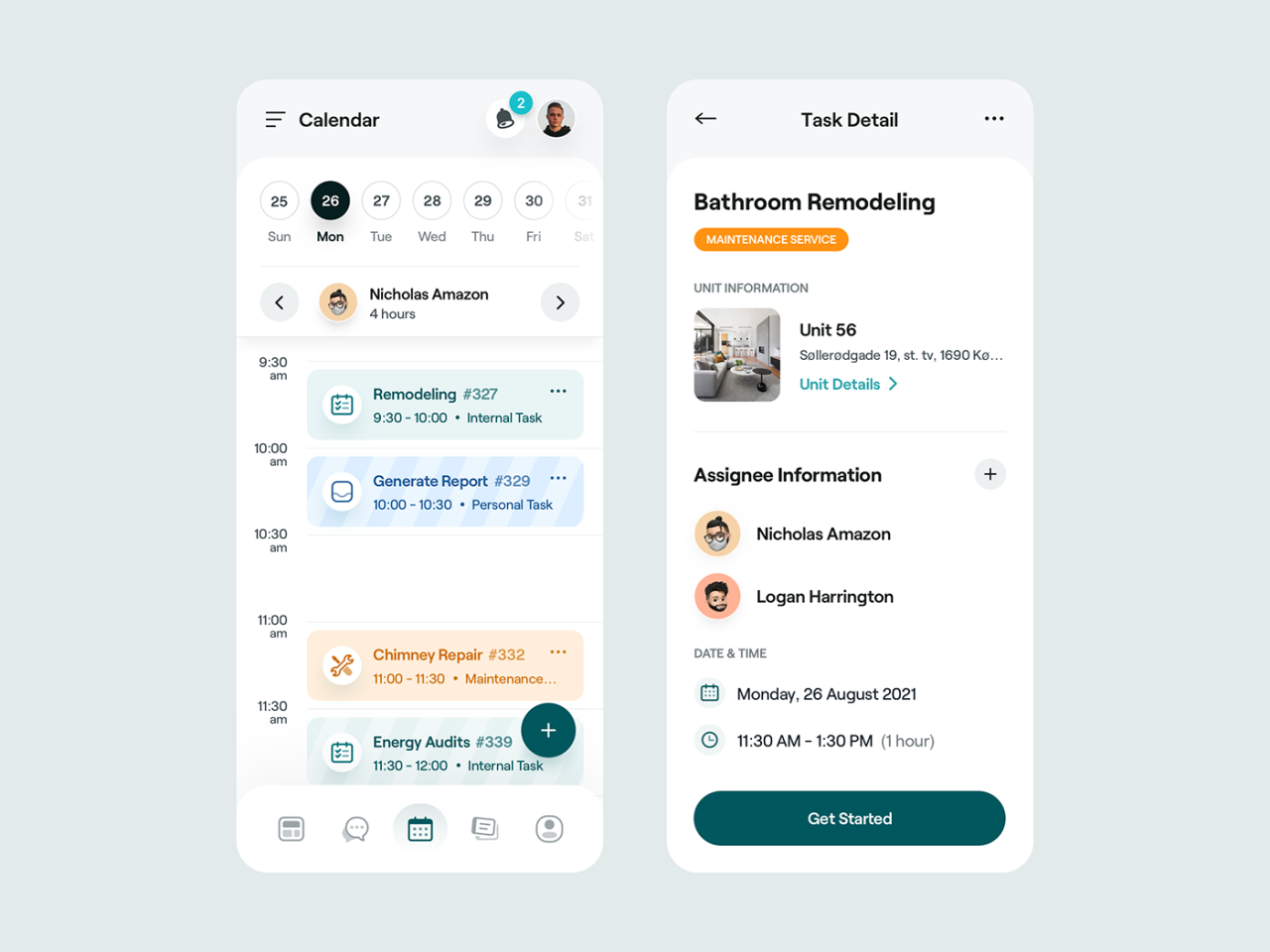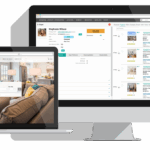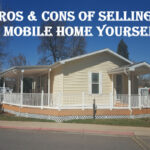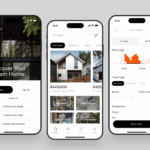Best software for managing mobile home real estate is essential for anyone looking to streamline their operations and enhance property management efficiency. As the landscape of mobile home real estate continues to evolve, leveraging technology becomes increasingly important. This software not only simplifies day-to-day management tasks but also brings a wealth of innovative features to the table, making it easier for owners and managers to oversee properties effectively.
From tenant management to maintenance scheduling, the right software can significantly impact how mobile home parks operate. With a variety of options available, understanding the benefits and key features of each solution is crucial for making informed decisions. Exploring the latest trends and innovations in this field sheds light on the future of mobile home real estate management and the integral role that software plays in enhancing operational success.
Overview of Mobile Home Real Estate Management Software
Mobile home real estate management software has become an essential tool for property owners, investors, and managers in the dynamic world of mobile home parks. By leveraging technology, users can streamline their processes, reduce costs, and improve tenant relations. This software not only enhances operational efficiency but also provides valuable insights for strategic decision-making.The primary purpose of mobile home real estate management software is to facilitate the management of properties by automating various tasks associated with leasing, maintenance, and tenant communication.
Implementing such software can lead to significant benefits, including improved financial tracking, enhanced tenant satisfaction, and effective reporting capabilities. Efficient management of mobile home properties relies heavily on features that cater specifically to the unique needs of this type of real estate.
Key Features of Effective Mobile Home Real Estate Management Software
A variety of features contribute to the effectiveness of mobile home real estate management software. Understanding these features can help stakeholders choose the right platform for their needs. Here are some critical features to consider:
- Tenant Management: The software should provide comprehensive tools for managing tenant information, lease agreements, and payment histories. This allows for streamlined communication and record-keeping.
- Financial Tracking: Effective software includes financial management tools that enable users to track income, expenses, and overall financial health through detailed reporting and forecasting functionalities.
- Maintenance Management: An efficient mobile home management platform should include features for tracking maintenance requests and scheduling repairs, ensuring that properties remain in excellent condition and tenants are satisfied.
- Online Payments: Enabling tenants to pay rent online simplifies transactions and can lead to timely payments, significantly reducing late fees and administrative tasks.
- Reporting and Analytics: Robust reporting capabilities allow property managers to generate insights into occupancy rates, revenue trends, and operational efficiency, fostering data-driven decision-making.
Trends and Innovations in Mobile Home Real Estate Management Software
The mobile home real estate market is witnessing several trends and innovations that are transforming how properties are managed. Emerging technologies and shifts in consumer expectations are driving these changes. Notable trends include:
1. Integration with Smart Technology
Many software platforms are now integrating with IoT devices, allowing for real-time monitoring of utilities and maintenance needs. For example, smart thermostats can alert property managers when temperatures fluctuate, indicating potential issues.
2. Mobile Accessibility
As mobile usage continues to dominate, more management software solutions are offering mobile applications. This allows property managers and tenants to access information and communicate on-the-go, enhancing convenience and responsiveness.
3. Data Security Enhancements
With growing concerns about data privacy, robust security measures are being implemented to protect sensitive tenant information. This includes encryption and compliance with data protection regulations, ensuring a safe user experience.
4. AI and Machine Learning
Advanced algorithms are being utilized to analyze tenant behavior, predict maintenance needs, and optimize rental pricing. For instance, AI can analyze past payment patterns to identify which tenants are likely to pay on time, helping in strategy formulation.
5. Sustainability Features
As environmental concerns increase, more software solutions are incorporating sustainability metrics to help property owners manage energy consumption and reduce waste. For example, features that track energy efficiency can assist in making eco-friendly improvements.The continuous evolution of mobile home real estate management software demonstrates the importance of staying updated with trends to leverage these innovations for improved management and increased tenant satisfaction.
Criteria for Selecting the Best Software

When it comes to managing mobile home real estate, selecting the right software can significantly streamline operations and enhance productivity. This choice impacts everything from tenant management to financial tracking, making it essential to consider various critical factors before making a decision.Several important factors should be evaluated when choosing software for mobile home management. These criteria encompass functionality, user-friendliness, integration capabilities, and customer support.
Each aspect plays a vital role in ensuring that the software meets the specific needs of mobile home park management.
Essential Features to Evaluate
Understanding the essential features of mobile home management software can drive the selection process. Here are key functionalities to consider:
- Tenant Management: The ability to manage tenant information, track payments, and communicate effectively is paramount. This feature allows for streamlined interactions and better customer service.
- Financial Reporting: Robust financial tools should include budgeting, expense tracking, and income statements. These functionalities provide insights into the financial health of the property.
- Maintenance Tracking: A reliable software should offer maintenance request tracking, scheduling, and follow-up capabilities. This ensures that property issues are resolved promptly.
- Online Payment Processing: Facilitating online rent payments enhances convenience for tenants and reduces late payments, which is critical for cash flow.
- Mobile Access: With many property managers on the go, mobile-friendly applications allow managers to access vital information anytime, anywhere.
Pricing Structures of Software Options
Pricing is a significant factor when comparing mobile home management software. Different software solutions come with various pricing structures, impacting budget considerations for property managers. The common pricing models include:
- Subscription-Based: Many platforms operate on a monthly or annual subscription model, allowing for scalable costs based on the number of units managed. For example, some popular software may charge $50 per month for up to 10 units, with higher tiers for larger portfolios.
- One-Time Purchase: Some software solutions require a one-time payment, offering lifetime access. This model may appeal to those preferring upfront costs over ongoing fees.
- Freemium Options: Certain platforms provide basic functionalities for free, with the option to upgrade to premium features at a cost. This model is particularly beneficial for smaller operations testing the software before making a commitment.
User Feedback and Reviews
User feedback can provide valuable insights into the effectiveness and reliability of software options available in the market. Reviews often highlight strengths and weaknesses that may not be immediately apparent.When analyzing user feedback, it is helpful to consider the following aspects:
- User Experience: Many users emphasize the importance of an intuitive interface. Positive reviews often mention ease of navigation and quick access to essential features.
- Customer Support: Effective customer service can make a significant difference. Users frequently appreciate responsive support teams that assist with onboarding and troubleshooting.
- Reliability: Reviews often focus on performance stability. Reliable software minimizes downtime, ensuring property management operates smoothly.
- Value for Money: Users frequently assess if the software provides adequate features relative to its price. Feedback often includes commendations for software that delivers excellent functionality without exorbitant costs.
“The best software is not just about features; it’s about how well it can improve your daily operations and enhance tenant satisfaction.”
Top Software Solutions for Mobile Home Management
Managing mobile home real estate effectively is essential for property managers and owners who aim to maximize their investments and streamline operations. With a variety of software solutions available, choosing the right one can significantly enhance the management process, making it more efficient and organized. Below, we delve into some of the leading software solutions specifically designed for mobile home management, highlighting their features, pricing, and user ratings.
Leading Software Solutions
An array of software options exists to cater to the varying needs of mobile home managers. Below is a selection of prominent software solutions, each with unique features that facilitate effective management of mobile home parks.
- Rentec Direct: This comprehensive property management software offers features like online rent collection, tenant screening, and maintenance tracking. Its user-friendly interface is particularly appreciated by mobile home park managers.
- TenantCloud: TenantCloud provides a robust platform for managing tenants and properties, with features including a mobile app, online payments, and rental applications. It is noted for its affordability and ease of use.
- AppFolio: AppFolio is known for its intuitive design and extensive functionalities, including online maintenance requests and property marketing tools. It is ideal for larger property managers seeking advanced analytics and reporting.
- Propertyware: Designed specifically for the needs of property management companies, Propertyware offers a variety of tools such as tenant portals and accounting capabilities. It is favored by larger mobile home operations.
- Rentec Direct: This software is geared towards those who manage multiple properties, offering powerful financial reporting and management features that help keep operations efficient and transparent.
Comparison of Features, Pricing, and User Ratings
Understanding the key features, pricing structures, and user experiences of each software solution is crucial for making an informed choice. Below is a comparison table that encapsulates this information for a clearer perspective.
| Software | Key Features | Pricing | User Rating |
|---|---|---|---|
| Rentec Direct | Online payments, tenant screening, maintenance tracking | Starting at $35/month | 4.5/5 |
| TenantCloud | Mobile app, online payments, rental applications | Free tier available; Paid plans start at $12/month | 4.3/5 |
| AppFolio | Maintenance requests, property marketing, analytics | Starting at $1.25/unit/month | 4.7/5 |
| Propertyware | Tenant portals, accounting, reporting | Custom pricing based on needs | 4.2/5 |
| Rentec Direct | Financial reporting, property management tools | Starting at $35/month | 4.5/5 |
Strengths and Weaknesses of Each Software Option
Each software solution presents its own set of strengths and weaknesses, which can impact its suitability depending on the specific needs of mobile home management.
- Rentec Direct: Strengths include its comprehensive features and intuitive design, making it a favorite among users. However, some find the pricing to be slightly higher than competitors.
- TenantCloud: This software is highly praised for its affordability, especially for smaller operations. Despite its strong features, it may lack some advanced functionalities found in pricier options.
- AppFolio: Known for its robust analytics and reporting, AppFolio can manage larger portfolios efficiently.
On the downside, its pricing can be a barrier for smaller property owners.
- Propertyware: This solution excels in customization and reporting capabilities, making it suitable for serious property management companies. However, it might be overly complex for smaller mobile home park owners.
- Rentec Direct: This software’s strong point is its extensive financial reporting, but the learning curve can be steep for new users unfamiliar with such comprehensive tools.
Features to Look for in Mobile Home Management Software
When managing mobile home properties, utilizing effective software can streamline numerous tasks, enhance tenant satisfaction, and boost overall efficiency. The right mobile home management software offers a blend of features tailored to the unique needs of mobile home park owners and property managers, ensuring all aspects of management run smoothly.A well-rounded software solution should encompass various essential features that address tenant needs, maintenance tasks, and financial oversight.
These features can be categorized into user interface, customer support, and integration capabilities, among others. In today’s digital age, mobile access and cloud storage are paramount, enabling landlords to manage their properties from anywhere.
Tenant Management
Effective tenant management is a cornerstone of mobile home management software. This feature streamlines the leasing process, tenant communications, and record keeping. A comprehensive tenant management system should include the following elements:
- Lease Tracking: Monitor lease agreements and renewal dates to avoid lapses in tenancy.
- Tenant Screening: Integrate background checks and credit screening to ensure reliable tenants.
- Communication Tools: Facilitate direct communication between landlords and tenants via email, text, or in-app messaging.
These functionalities not only enhance tenant relations but also reduce the risk of vacancies and improve overall management efficiency.
Maintenance Scheduling
Maintenance is critical in ensuring the value and livability of mobile homes. An effective maintenance scheduling feature allows property managers to streamline repair requests and ensure timely service. Important components include:
- Work Order Management: Easily create, assign, and track work orders to ensure timely completion of tasks.
- Preventive Maintenance Reminders: Set reminders for regular maintenance checks to avoid costly repairs down the line.
- Vendor Management: Store and manage vendor information for quick access when repairs are needed.
By effectively managing maintenance, property managers can enhance tenant satisfaction and minimize long-term costs.
Financial Reporting
Robust financial reporting capabilities are essential for tracking income and expenses, which can significantly impact the profitability of a mobile home park. Key features to look for include:
- Automated Rent Collection: Simplify the rent collection process through online payment options.
- Expense Tracking: Monitor expenses related to maintenance, utilities, and other property-related costs.
- Customizable Reports: Generate detailed reports on income, expenditures, and cash flow to support strategic decision-making.
Effective financial tools help ensure that mobile home park owners maintain a clear understanding of their financial standing, which is crucial for long-term success.
User Interface and Mobile Access
A user-friendly interface is critical in ensuring that both property managers and tenants can easily navigate and utilize the software. This enhances overall user experience and engagement. Similarly, mobile access is vital in providing flexibility to property managers who may be on the go. Features to consider include:
- Intuitive Dashboard: A clear overview of critical metrics and tasks that can be accessed at a glance.
- Mobile Compatibility: An app or mobile-responsive design that allows access from smartphones and tablets.
- Cloud Storage: Secure online storage to ensure data safety and accessibility from anywhere.
Cloud storage not only secures sensitive information but also enables seamless collaboration among staff, ensuring that everyone has access to the most up-to-date information.
Customer Support and Integration Capabilities
Reliable customer support is essential when issues arise, and integrating with other tools can significantly enhance functionality. Consider these important aspects:
- Support Channels: Access to various support channels like live chat, email, and phone support for quick assistance.
- Integration with Accounting Software: Ensure compatibility with popular finance tools for streamlined financial management.
- Third-party Integrations: Ability to connect with other property management tools like CRM systems for enhanced efficiency.
Strong customer support and integration capabilities not only ensure smooth operation but also allow for a more customized management experience.
Implementation and Integration of Software: Best Software For Managing Mobile Home Real Estate
Implementing a new software solution for managing mobile home real estate is a critical step toward enhancing operational efficiency and improving tenant relationships. This process requires careful planning and execution to ensure a smooth transition and maximum utilization of the software’s features. In this section, we will Artikel the necessary steps for successful implementation and integration, as well as important training requirements for staff and users.
Steps for Successfully Implementing Software
The successful implementation of software in a mobile home park requires a structured approach. Following these steps can help ensure a seamless transition:
1. Define Goals and Objectives
Clearly Artikel what you aim to achieve with the new software, such as improved tenant communication, better financial tracking, or enhanced maintenance requests.
2. Choose the Right Software
After evaluating the software options available, select one that meets your defined goals and fits your budget. Consider factors such as scalability, user-friendliness, and customer support.
3. Create an Implementation Team
Assemble a team consisting of key stakeholders, including property managers, IT staff, and any other relevant employees. This team will oversee the implementation process.
4. Develop a Timeline
Establish a realistic timeline for the implementation process, ensuring to include time for setup, testing, training, and feedback.
5. Data Migration
Plan and execute the transfer of existing data into the new system. This may involve cleaning up current records to ensure accurate and complete information is imported.
6. Pilot Testing
Before a full rollout, conduct pilot testing with a small group of users to identify any issues and gather feedback.
7. Full Deployment
Once testing is complete and any issues have been resolved, deploy the software across the entire organization.
Checklist for Integrating Software with Existing Systems
Integrating new software with existing systems is vital for ensuring interoperability and maintaining workflow efficiency. Here is a checklist to guide this integration process:
Assess Current System Compatibility
Evaluate existing systems to determine how the new software will interact with them.
Identify Integration Requirements
List necessary APIs or connectors needed for seamless integration.
Test Integration Points
Implement a testing phase to verify that the new software can communicate properly with existing systems.
Backup Existing Data
Ensure all current data is backed up before starting the integration process to prevent loss.
Develop Documentation
Prepare comprehensive documentation that Artikels the integration process and any changes made to systems.
Monitor Performance Post-Integration
After integration, continuously monitor system performance to quickly address any issues that arise.
Training Requirements for Staff and Users, Best software for managing mobile home real estate
Training is a crucial element in maximizing the usage of new software. It is essential to equip your staff and users with the necessary skills and knowledge to utilize the software effectively. Consider the following training components:
Initial Training Sessions
Conduct comprehensive training sessions for all users, covering the software’s features, functionalities, and best practices. Interactive sessions can enhance engagement and learning.
User Manuals and Resources
Provide user manuals and online resources that staff can refer to at any time for troubleshooting or learning about advanced features.
Ongoing Support and Training
Establish an ongoing training program to address new features as they are rolled out and to provide refreshers for existing users.
Feedback Mechanism
Implement a system for collecting feedback from users post-training, allowing for adjustments in future training sessions based on user experience.
Train-the-Trainer Approach
Identify certain staff members to become experts in the software. They can then train their peers, promoting a culture of knowledge-sharing within the organization.By following these steps and ensuring thorough training, mobile home parks can maximize the benefits of their new software solution, leading to improved management practices and enhanced tenant satisfaction.
Case Studies and Success Stories
In the world of mobile home real estate, effective management software can transform operations, streamline processes, and improve tenant satisfaction. The following case studies highlight how different mobile home parks have leveraged technology to enhance their management practices. These success stories demonstrate the tangible benefits that come from implementing robust software solutions, as well as the challenges faced and how they were ultimately overcome.
Success Story: Oak Grove Mobile Home Park
Oak Grove Mobile Home Park, located in the Midwest, struggled with manual processes that were time-consuming and prone to errors. The management team decided to implement a specialized mobile home management software, which allowed them to automate various tasks such as rent collection, maintenance requests, and tenant communication. The initial challenge during implementation was resistance from staff who were accustomed to traditional methods.
To overcome this, the management organized training sessions and provided ongoing support, ensuring everyone was comfortable with the new system. The impact was significant:
- Reduction in administrative time by 40%, allowing staff to focus on tenant relations.
- Increased tenant satisfaction scores due to faster response times for maintenance requests.
- Improvement in cash flow with an online rent collection feature that reduced late payments by 30%.
The Oak Grove example illustrates how a well-implemented software solution can revolutionize property management, leading to enhanced efficiency and tenant satisfaction.
Success Story: Sunnyvale Estates
Sunnyvale Estates faced challenges with managing multiple properties and keeping track of tenant records. The management opted for an integrated software solution that provided a centralized platform for all operations. During the transition, they encountered data migration challenges, particularly in consolidating records from various sources. To address this, they enlisted the help of a software vendor who provided expert guidance throughout the data migration process, ensuring accuracy and completeness.The results after implementing the software were impressive:
- Centralization of tenant data improved access and communication, resulting in a more cohesive management approach.
- Maintenance requests were tracked and resolved 50% faster, significantly enhancing operational efficiency.
- The park reported a 25% increase in lease renewals, attributed to improved tenant relations facilitated by better communication.
Sunnyvale Estates exemplifies how overcoming initial implementation challenges can lead to substantial long-term benefits in property management.
Success Story: Maplewood Park
Maplewood Park, a family-owned mobile home park, needed a solution to manage their tenant applications and leasing processes more effectively. They implemented a software solution that included an online application portal, allowing prospective tenants to apply easily.The challenge here was the initial setup of the online application system, which required a complete overhaul of their tenant screening process. After collaborating with the software provider for tailored training and support, the park staff quickly adapted to the new system.The benefits realized were noteworthy:
- A reduction in application processing time by 60%, significantly speeding up the tenant onboarding process.
- Enhanced screening capabilities led to better tenant quality, reducing turnover rates.
- Improved marketing effectiveness, as the software’s analytics tools helped target potential applicants more efficiently.
Maplewood Park’s experience underscores the transformative power of adopting technology to enhance tenant management processes.
Implementation of management software can lead to a more efficient, responsive mobile home park operation, fostering tenant satisfaction and long-term success.
Future of Mobile Home Real Estate Software
The landscape of mobile home real estate management software is on the brink of significant transformation. As technology continues to evolve, the software that supports property management, tenant interaction, and operational efficiency is likely to adopt new features and capabilities. The future developments in mobile home management software will likely be shaped by the demands of the market and advancements in technology.
With increasing competition and the need for better management solutions, software developers are expected to innovate and provide more user-friendly, efficient, and integrated solutions.
Predictions for Future Developments
Several key predictions can be made regarding the future of mobile home real estate management software. These predictions are based on current trends and technological advancements that are expected to redefine the industry:
Integration of Artificial Intelligence
AI will play a pivotal role in automating routine tasks, optimizing resource allocation, and enhancing customer service through chatbots and predictive analytics. For instance, AI-powered tools can analyze tenant behavior and provide insights that lead to improved tenant retention rates.
Enhanced Data Security
As cyber threats become more sophisticated, mobile home management software will need to adopt advanced security measures. This includes end-to-end encryption, multi-factor authentication, and regular security updates to protect sensitive tenant data from breaches.
Mobile Accessibility and User Experience
The demand for mobile solutions is expected to rise, with software becoming increasingly accessible on smartphones and tablets. The focus will be on creating intuitive interfaces that allow property managers and tenants to interact seamlessly.
Challenges in Evolving Technology
While the future looks promising, several challenges are anticipated as technology evolves within the real estate sector:
Adaptation to Rapid Changes
Real estate professionals may face difficulties in keeping up with the fast-paced evolution of technology. Training staff to adapt to new systems and tools can be time-consuming and costly.
Integration of Legacy Systems
Many mobile home parks still operate on outdated systems. Integrating new software solutions with existing legacy systems presents significant technical challenges.
Cost Implications
Investing in new technology can be financially burdensome for some mobile home property owners. Budget constraints may limit the ability to adopt the latest innovations.
Influence of Emerging Technologies
Emerging technologies, particularly Artificial Intelligence (AI) and the Internet of Things (IoT), are poised to significantly influence mobile home management:
Artificial Intelligence
AI can streamline operations, enhance decision-making, and improve tenant engagement. For example, AI algorithms can analyze market trends to forecast rental prices and identify optimal investment opportunities.
Internet of Things (IoT)
IoT devices can facilitate real-time monitoring of properties. Smart sensors can provide alerts related to maintenance needs, energy consumption, and security systems. This enhances operational efficiency and tenant satisfaction by addressing issues proactively.Incorporating these technologies could lead to transformative outcomes in mobile home real estate management, enabling more effective property management and improved tenant experiences.
Closing Notes
In summary, selecting the best software for managing mobile home real estate is about finding a solution that meets your unique needs and streamlines your management processes. With numerous software options on the market, comparing features, pricing, and user feedback is vital in making the right choice. As technology continues to advance, staying informed about new developments will ensure that your mobile home management strategies remain effective and competitive.




